MIRS Visiting Experts
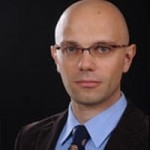
Dmitry Adamsky
Dr. Adamsky is a professor in the Lauder School of Government, Diplomacy and Strategy at the IDC Herzliya. In his research, he focuses on international security, strategic studies, cultural approach to IR, modern military thought, nuclear strategy, and American, Russian, and Israeli national security policy. Dr. Adamsky has published widely and is the author of two prize-winning books on Israeli security.
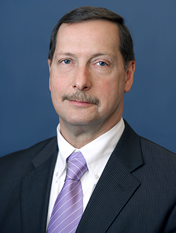
Alexey Arbatov
Dr. Arbatov is the head of the Center for International Security at IMEMO in Moscow and a scholar in residence in the Nonproliferation Program at the Carnegie Moscow Center. He is a full member of the Russian Academy of Sciences, where he leads the Center for International Security at the Institute for World Economy and International Relations. Dr. Arbatov sits on the research council of the Russian Ministry of Foreign Affairs, the Russian Council for Foreign and Defense Policy, the governing board of SIPRI, and the board of CNS, among others. He is also the vice-president of the Luxembourg Forum. He served as a member of the Soviet delegation to the START-1 negotiations and as deputy chairman of the Duma Defense Committee. He was a member of the Duma and served as vice chairman of the YABLOKO party. Dr. Arbatov has published numerous books and articles on international relations, foreign and military policy, and arms control, and disarmament.

Nadia Arbatova
Dr. Arbatova is the head of the Department of European Political Studies at IMEMO in Moscow. She has worked for the Swedish National Defense College, as well as the Hellenic Foundation for European and Foreign Policy. Dr. Arbatova’s areas of research interest include European integration, EU-Russia relations, European security, and Russia’s foreign policy. She has published widely on these topics and others, and is a member of numerous academic and scientific councils and associations.
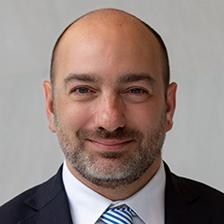
Max Bergmann
Max Bergmann is the director of the Europe Program at the Center for Strategic and International Studies (CSIS). Prior to joining CSIS he was a senior fellow at the Center for American Progress, where he focused on Europe, Russia, and U.S. security cooperation. From 2011 to 2017, he served in the U.S. Department of State in a number of different positions, including as a member of the secretary of state’s policy planning staff, where he focused on political-military affairs and nonproliferation; special assistant to the undersecretary for arms control and international security; speechwriter to then secretary of state John Kerry; and senior adviser to the assistant secretary of state for political-military affairs. Before serving in the State Department, Bergmann worked at the Center for American Progress as a military and nonproliferation policy analyst and at the National Security Network as the deputy policy director. Bergmann holds a master’s degree in comparative politics from the London School of Economics and Political Science and a bachelor’s degree in political science from Bates College.
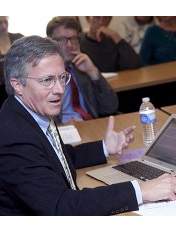
Thomas Blanton
Dr. Thomas S. Blanton is director of the National Security Archive at George Washington University in Washington, D.C. The Archive won U.S. journalism’s George Polk Award in April 2000 for “piercing self-serving veils of government secrecy, guiding journalists in search for the truth, and informing us all.” The Los Angeles Times (16 January 2001) described the Archive as “the world’s largest nongovernmental library of declassified documents.” Dr. Blanton filed his first Freedom of Information Act request in 1976 while working as a weekly newspaper reporter in Minnesota, and many others subsequently. He filed the FOIA request and lawsuit (with Public Citizen Litigation Group) that forced the release of Oliver North’s Iran-contra diaries in 1990. He is a founding editorial board member of freedominfo.org, the virtual network of international freedom of information advocates, and serves on the editorial board of H-DIPLO, the diplomatic history electronic bulletin board.
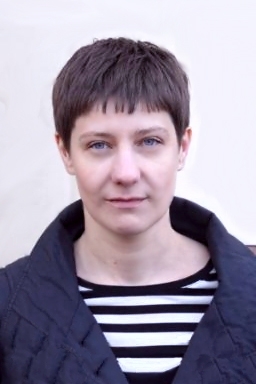
Irina Borogan
Irina Borogan is a Russian investigative journalist, co-founder, and deputy editor of Agentura.ru, a watchdog of the Russian secret services’ activities. Borogan reported on terrorist attacks in Russia, including hostage takings in Moscow and Beslan. In 1999 Borogan covered the NATO bombing in Yugoslavia, in 2006 she covered the Lebanon War and tensions in the West Bank and Gaza Strip. She chronicled the Kremlin’s campaign to gain control of civil society and strengthen the government’s police services under the pretext of fighting extremism.
She is co-author with Andrei Soldatov of The New Nobility. The Restoration of Russia’s Security State and the Enduring Legacy of the KGB (PublicAffairs, 2010), The Red Web: The Kremlin’s Wars on the Internet (PublicAffairs, 2015) and The Compatriots: The Brutal and Chaotic History of Russia’s Exiles, Émigrés, and Agents Abroad (PublicAffairs, 2019).
Borogan has been a nonresident senior fellow with the Center for European Policy Analysis and a visiting fellow at King’s Russia Institute, London, since 2020.
Maria Mikhailovna Buras
Maria Mikhailovna Buras is a linguist and journalist. She worked as the deputy editor-in-chief of the newspaper The Foreigner and as the editor-in-chief of the Kommersant-Science magazine. She led the public relations agency PR-Technologies and the Applied Communications Center. She authored articles in scientific and popular science publications and periodicals, as well as the book, Truth Exists: The Life of Andrei Zaliznyak through Stories of Its Participants.
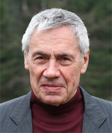
Vladimir Dvorkin
Dr. Vladimir Zinovievich Dvorkin is a senior scientist at the Center for International Security at the Russian Academy of Sciences’ Institute of Economic and International Relations. General Dvorkin graduated from the Higher Military Naval School and served in the Soviet/Russian Armed Forces until his retirement. He participated in some of the first tests of Soviet nuclear-powered ballistic missile submarines and underwater nuclear rocket carriers, such as the K-19 submarine. He later worked in the 4th Central Research Institute of the Ministry of Defense, which he headed until his retirement. General Dvorkin served as an expert in the development of key U.S.-Russian bilateral nuclear treaties, including SALT-2, INF Treaty, START-1, and the START-2 treaties. Dr. Dvorkin’s lectures touched upon a variety of Russian security issues, including missile defense, nuclear arms control, and Russian defense and military policy.
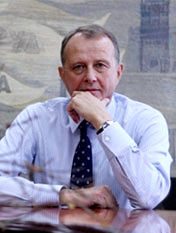
Alexander Dynkin
Dr. Alexander Aleksandrovich Dynkin is the director of the Primakov National Research Institute of World Economy and International Relations (IMEMO) at the Russian Academy of Sciences (RAS). He is a member of the RAS, Doctor of Economics, professor, academician, secretary of the Division for Global Issues and International Relations of the RAS, and member of the Presidium of the RAS. He is a member of the Presidium of the Presidential Council for Science and Education, the Presidential Economic Council, the Presidential Commission for Strategic Development of the Fuel and Energy Sector and Environmental Security, the Scientific Council of the RF Security Council, and the Scientific Council of the Ministry of Foreign Affairs of the RF.
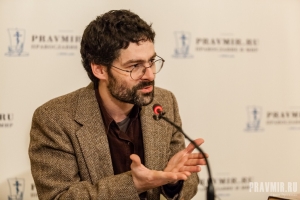
Nikolay Epplee
Nikolay Epplee is an independent researcher working on international memorial culture and on the memory of Soviet state terror specifically. He published on memory issues in Vedomosti, InLiberty, Colta, and other Russian media. He graduated from Russian State University for the Humanities (Moscow), where he studied classical philology and philosophy. He lectured on ancient Greek philosophy at the State University of Humanitarian Studies, classical and medieval literature at St. Thomas Institute Moscow, and published translations from Greek, Latin, English, German and Italian. In 2013-2017 he was an editorial writer in the daily paper Vedomosti. In 2017-2018 he was fellowship holder at the Heinrich Böll Foundation (Moscow), the Institute of Human Sciences (Vienna) and the German Historical Institute (Moscow).
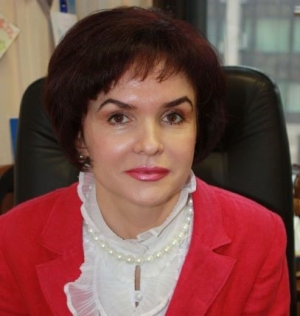
Oksana Gaman-Golutvina
Dr. Gaman-Golutvina is the chair of the Department of Comparative Politics, MGIMO-University, the Ministry of Foreign Affairs of Russia, and chairman of the Scientific Council. She specializes in comparative studies of political elites and teaches courses in comparative politics, Russian politics, the political transformations in post-communist countries, as well as political and administrative governance. In 2010, Professor Gaman-Golutvina was elected president of the Russian Political Science Association. In 2009, at the Congress of International Political Science Association (IPSA), she was elected member of the Executive Board of Research Committee 2 “Political Elites.”
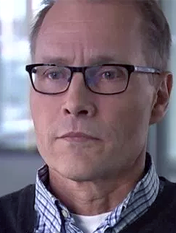
Crister Garrett
Dr. Garrett is a professor for International Studies at Leipzig University in Germany. Prior to arriving in Leipzig, Professor Garrett taught at the University of Wisconsin, Madison and directed the European Studies Program. His career began at the (then) Monterey Institute of International Studies, focusing on contemporary transatlantic history and politics. He writes extensively on German foreign policy, European politics, and transatlantic relations. He has been a Fulbright Senior Scholar to Germany, a Robert Bosch Foundation Transatlantic Fellow, and a DAAD International Visiting Scholar. He is founder and director of the DAAD-supported Summer School, “Cultures of Security in a Transatlantic and Global Context” (culturesofsecurity.org). His publications have appeared in Aus Politik und Zeitgeschichte, the Harvard International Review, German Politics, The European Community Studies Review, the UCLA Historical Journal, and East European Quarterly.
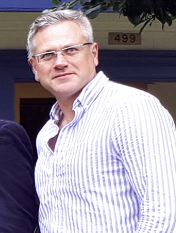
Sergii Glebov
Dr. Glebov is a deputy dean of the Faculty of International Relations, Political Science and Sociology, associate professor at the Department of International Relations, and leading research fellow at the Center for International Studies, Odessa I. I. Mechnikov National University (ONU). He is a Fulbright Visiting Scholar at the University of California San Diego, School of Global Policy and Strategy in the academic year 2018/2019. His research and teaching interests are in the field of the foreign and security policy of Ukraine, international relations in the Black Sea-Caspian region, European and Euro-Atlantic security, foreign policy of Russia, NATO-Ukraine, and EU-Ukraine relations.
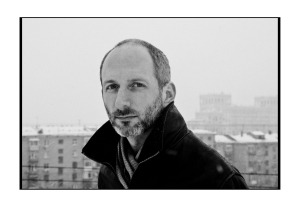
Sam Greene
Sam Greene is Professor of Russian politics and Director of the Russia Institute at King’s College London. His research focuses on mobilization, socialization and the relationship between citizens and the state in Russia, and in societies experiencing social, economic and political transformation more broadly. He is co-author with Graeme Robertson of Putin v the People: The Perilous Politics of a Divided Russia, published by Yale University Press in 2019. His first book, Moscow in Movement: Power and Opposition in Putin’s Russia, was published by Stanford University Press in 2014. Sam also serves as Associate Fellow in the Russian and Eurasian Programme of the International Institute for Security Studies and is a Visiting Fellow at the Kennan Institute of the Wilson International Center for Scholars.
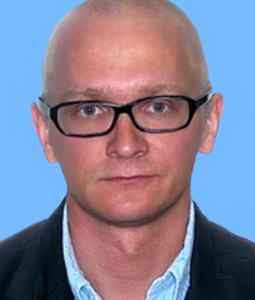
Pavel Gudev
Dr. Gudev is a senior research fellow at the Center for North American Studies at the Institute of World Economy and International Relations (IMEMO). His current research includes: the development and exploitation of space and ocean resources; strategic frameworks for ocean policies for foreign governments; maritime law; and supranational mechanisms for the regulation of maritime activities. He has published extensively on these issues as well as topics relating to U.S. and NATO foreign policy. He holds a PhD in history from the Institute of General History of the Russian Academy of Sciences.
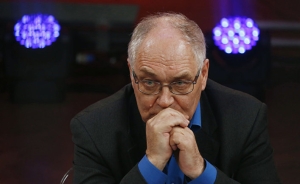
Lev D. Gudkov, PhD
Dr. Gudkov studied journalism, sociology, and philology at Moscow State University, received a post-graduate degree from The Institute for Philosophy of the USSR Academy of Sciences and earned a Doctor of Philosophy. He worked at various institutions in the USSR Academy of Sciences. He has been a researcher at The Russian Centre for Public Opinion Research (VCIOM), while also working as the director of the Levada Analytical Center (Levada-Center). He is the editor-in-chief of the magazine, Russian Public Opinion Herald, and a lecturer at The Higher School of Economics.
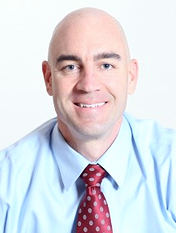
Shane Hamacher
- 2012-2014 Chief, Office of Defense Cooperation, U.S. Embassy, Moscow
- 2010 Director, Theater Security Cooperation/Humanitarian Assistance, Kyrgyz Republic
- 2009-2012 Country Director, Central Asian Republics and Iraq, Pentagon
- Senior Air Force pilot with 2000+ hours in F-15C, T-38, T-37 and C-150 aircraft
- Regional Affairs Strategist/Political Affairs Specialist in Russia/Former Soviet Republics
- Member of U.S. Ambassador’s Country Team at U.S. Embassy, Moscow
- Headquarters Staff, Deputy Under Secretary of the Air Force, Pentagon
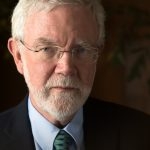
David Holloway
Dr. Holloway is the Raymond A. Spruance Professor of International History at Stanford University. He was the co-director of the Center for International Security and Cooperation (CISAC) at Stanford and the director of the Freeman Spogli Institute of International Studies. He has written about the history of nuclear weapons with a focus on the Soviet Union. His book, Stalin and the Bomb: The Soviet Union and Atomic Energy, 1939-1956, was selected by the New York Times Book Review as one of the best books of 1994.

Mitchell Johnson
J. Mitchell Johnson creates documentary and experimental films including World Without Waves that premiered at Moscow’s 2006 International Film Festival and was the winner of Santa Fe Film Festival’s Milagra Award. His Cold War series, Red Files, won the International Documentary Association’s “Best Limited Series” award. His film about the architect Philip Johnson, Watergarden, was featured nationally on PBS. He is a master’s graduate of the University of Southern California film school. He serves on the board of directors at San Francisco’s Institute for Citizen Diplomacy and was president of the last Lone Star Film Festival. Johnson’s current production, Remaining Human, received a commission from the IEEE Foundation and explores the lost science of cybernetics as well as its founder, Norbert Wiener. Also in the making is Coming Round, the true story of California’s Kashia Pomo Indian tribe’s fight to regain tribal lands and maintain cultural traditions. A list of Johnson’s productions and awards resides at Abamedia.com.
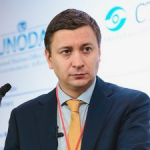
Anton Khlopkov
Anton Khlopkov is the director of the Center for Energy and Security Studies (CENESS), the editor-in-chief of the Nuclear Club journal and a member of the advisory board under the Security Council of the Russian Federation. He was the executive director at the PIR Center (Center for Policy Studies in Russia) and was a member of the Working Group on Nonproliferation and Export Control of the Partnership for Peace Consortium. He is the editor-in-chief of the Nuclear Nonproliferation Encyclopedia (2009) and coauthor of the monographs: ‘Iranian nuclear program in the US-Russian relations’ (2001); ‘At the Nuclear Threshold: The Lessons of North Korea and Iran for the Nuclear Non-Proliferation Regime’ (2007); ‘Global Partnership Against the Spread of Weapons of Mass Destruction Guidebook’ (2006); and ‘Nuclear Nonproliferation in Russian-American Relations: History, Opportunities and Outlook’ (2000).
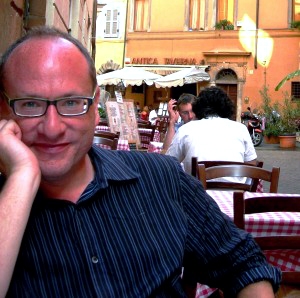
Michael Kimmage
Michael Kimmage is a professor of history at The Catholic University of America. From 2014 to 2017 he served in the Secretary’s Office of Policy Planning where he held the Russia/Ukraine portfolio. His latest book is titled The Abandonment of the West: The History of an Idea in American Foreign Policy.
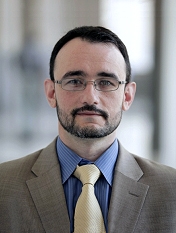
Michael Kofman
Michael Kofman is a research scientist at CNA Corporation and a fellow at the Kennan Institute, Woodrow Wilson International Center in Washington, D.C. His research focuses on security issues in Russia and the former Soviet Union, specializing in defense and military analysis. His current work looks at the sources of Russian behavior and policymaking during the crisis in Ukraine, and evaluates the options the West has for engagement with Russia moving forward. This lecture will be an opportunity to have an introduction to his work and ask questions to this expert.
Marina Aleksandrovna Koroleva
Marina Aleksandrovna Koroleva is a journalist and a radio and television host. She is a professor in the media and communications department at the National Research University Higher School of Economics (HSE) in Moscow. From 1994 to 2015 she was a news and broadcast anchor and deputy editor-in-chief of the Echo of Moscow radio station. She is an author and host of daily broadcasts on the Russian language (on Echo of Moscow) as well as on the children’s channel Carousel.
Marina Koroleva on Social Media:
Facebook https://www.facebook.com/marina.koroleva.754
Twitter https://twitter.com/MarKoroleva
Telegram https://t.me/markoroleva
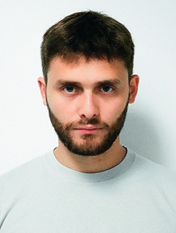
Ilia Krasilshchik
After dropping out of university at 21, in 2008 Ilya became the editor of the then most influential Moscow entertainment and city life magazine Afisha. During his five-year tenure Afisha published more the 100 issues including “Coming Outs” (as an answer to the ”LGBT propaganda” law adopted by State Duma), as well as a few mammoth specials like “Oral History of Russian Media” and “Oral History of Russian Internet”. He stepped down in 2013 to become the product director at Afisha publishing company, launching three separate web-based media and а TV streaming service in one year. In October 2014 he finally left Afisha, and together with two partners launched Meduza, a groundbreaking Russian language web news outlet based in Riga, Latvia. By August 2018 the monthly readership of Meduza exceeded 11 million unique visitors, with 1,000,000 app downloads and more than 1,500,000 followers on social media. 75% of Meduza’s audience is based in Russia. Ilia speaks fluent Russian and English.
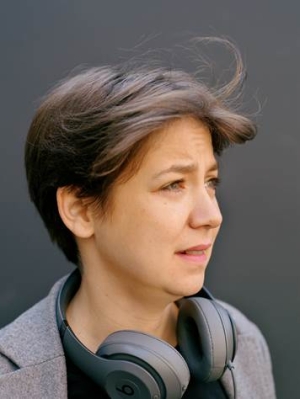
Ekaterina Kronhaus
Ekaterina Kronhaus is a journalist, writer, author of four books and founder of the first Russian podcast studio, LIBO/LIBO. She is the author and host of podcasts on ethics, business and the most popular Russian language podcast, Stories about Russian Sex, dedicated to sexuality in the USSR and contemporary Russia. One of the issues under consideration in Ms. Kronhaus’s work is the treatment of homosexuality in modern Chechnya. In six months, Stories about Russian Sex was played more than two million times. The podcast has received several awards for journalism, education, and podcasting.
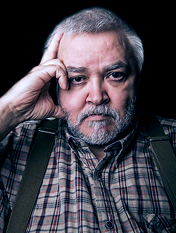
Maksim Krongauz
Dr. Krongauz is the head of the Laboratory of Linguistic Conflict Resolution Studies and Contemporary Communicative Practices at the Higher School of Economics. He is also the head of the Russian State University for the Humanities’ Russian Language Department. He is a member of the Government Council on the Russian Language of the Russian Federation, and an Enlightener prize laureate. He writes popular print and digital articles on the Russian language, linguistics, and education, and participates in public discussions on television and radio. Dr. Krongauz is a guest researcher and professor at universities in France, Germany, Italy, Austria, Estonia, Finland, and China. He received the Diderot (France) and Humboldt (Germany) Scholarships. He was also granted the title of Honored Worker of Higher Professional Education of the Russian Federation.
Yury Kruchkin
Dr. Yury Kruchkin is a professor in the Institute of International Studies at the Mongolian Academy of Science. He served as Secretary of the USSR General Consulate in Erdenet, Mongolia from 1981-1984. Dr. Kruchkin has also served as the Senior Referent to the Secretary of the USSR Embassy in Mongolia, as an Attaché of the Administration for Asian Socialist Countries at the USSR Ministry of Foreign Affairs, and as the Third Secretary of the USSR Embassy in Mongolia. Dr. Kruchkin is the Director of the Russian-Mongolian Publishing House “Agiimaa” and has written more than 25 books about Mongolia and Russian-Mongolian relations as well as Russian-Mongolian and Mongolian-Russian Dictionaries.

Hans Kundnani
Hans Kundnani is a Senior Research Fellow and director of the Europe programme at the Royal Institute of International Affairs (Chatham House) in London. Before joining Chatham House in 2018, he was a Senior Transatlantic Fellow at the German Marshall Fund of the United States and research director at the European Council on Foreign Relations. He is also an associate fellow at the Institute for German Studies at Birmingham University. In 2016 he was a Bosch Public Policy Fellow at the Transatlantic Academy in Washington, D.C.
Hans is the author of Utopia or Auschwitz. Germany’s 1968 Generation and the Holocaust (London/New York: Hurst/Columbia University Press, 2009) and The Paradox of German Power (London/New York: Hurst/Oxford University Press, 2014), which has been translated into German, Italian, Japanese, Korean and Spanish. He studied German and philosophy at Oxford University and journalism at Columbia University in New York, where he was a Fulbright Scholar. He tweets @hanskundnani.
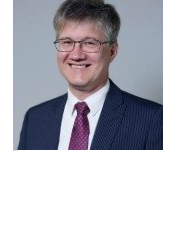
Ivan Kurilla
Dr. Kurilla is a professor at European University in St. Petersburg and specializes in the history of U.S.-Russia relations during the antebellum and Civil War periods of American history. He has authored numerous articles and three monographs on these subjects and others. He is the editor of many collected volumes.
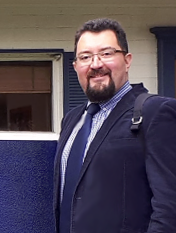
Denys Kuzmin
Dr. Denys Kuzmin is an assistant professor at the Department of International Relations, at Odessa I.I. Mechnikov National University, School of International Relations, Political Science and Sociology, where he is also a senior research fellow and European Studies program coordinator at the Center for International Studies.
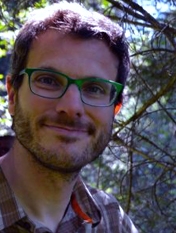
Matthew Levie
Matthew Levie graduated from MIIS in 2018. He has an MPA with a specialization in Financial Crime Prevention. While studying at MIIS, he was interested in issues related to political corruption and migration, and has published academic articles on both topics. He currently works as a government auditor.
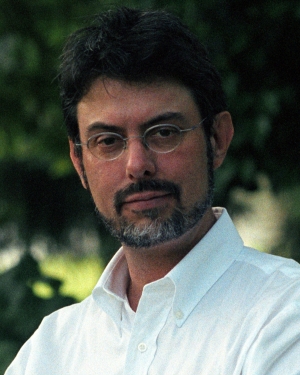
Anatol Lieven
Anatol Lieven is a professor at SFS-Qatar. He served as the chair of international relations and terrorism studies in the War Studies Department at King’s College London. He is also a senior fellow of the New America Foundation in Washington, D.C. His areas of expertise include Islamist terrorism and insurgency; contemporary warfare; U.S. and Western strategy; the countries of the former Soviet Union; and the Greater Middle East, especially Pakistan, Afghanistan and Iran. His latest book, Pakistan: A Hard Country, was published in April 2011 by Penguin in the UK and Public Affairs in the U.S. From 2000-2007, Anatol Lieven worked in Washington, D.C., first as a senior associate of the Carnegie Endowment for International Peace, and then as a senior research fellow at the New America Foundation. During this period he wrote Ethical Realism: A Vision for America’s Role in the World (coauthored with John Hulsman, published in September 2006 by Pantheon) and America Right or Wrong: An Anatomy of American Nationalism (Oxford University Press and Harper Collins, 2004, republished in an updated and expanded new edition, 2012). From 1986 to 1998, he worked as a British journalist in South Asia and the former Soviet Union (chiefly for The Times), and is author of several books on the latter region, including: The Baltic Revolution: Estonia, Latvia, Lithuania and the Path to Independence (Yale University Press 1993), Chechnya: Tombstone of Russian Power? (Yale University Press 1998) and Ukraine and Russia: A Fraternal Rivalry (U.S. Institute of Peace, 1999). The Baltic Revolution won the George Orwell Prize for Political Writing and the Yale University Press Governor’s Award in 1993. Anatol Lieven frequently writes for the international media. He has testified before committees and sub-committees of the U.S. Congress and the British parliament, has briefed the British government on Afghanistan and Pakistan, and has spoken on numerous occasions at the British Foreign and Commonwealth Office, the U.S. Department of State, and the French Foreign Ministry, as well as at a wide range of U.S., European, Russian and Chinese universities and institutes. Anatol Lieven holds a BA in history and a PhD in political science from the University of Cambridge, Great Britain.
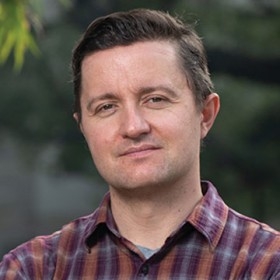
Igor Logvinenko
Igor Logvinenko is an Associate Professor of Diplomacy & World Affairs and an affiliate of the John Parke Young Initiative on the Global Political Economy at Occidental College. His research and commentary have appeared in Communist and Post-Communist Studies, Democratization, Europe-Asia Studies, Review of International Political Economy, Just Security, The Moscow Times, and other publications.
His book Global Finance and Local Control: Corruption and Wealth in Contemporary Russia was published in the Cornell Studies in Money series at Cornell University Press in 2021.
Professor Logvinenko received his doctorate in Government from Cornell University in 2015 and previously spent five years in the Department of Political Science at Wellesley College.
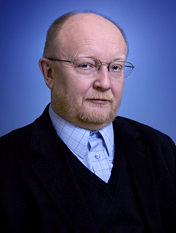
Alexey Malashenko
Dr. Malashenko is the co-chair of the Carnegie Moscow Center’s Religion, Society, and Security Program and is a professor of political science. He is a member of the RIA Novosti advisory council and is a board member of the International Federation for Peace and Conciliation. He serves on the editorial boards of the journals: Central Asia, Caucasus and Acta Eurasica, and the newsletter, Russia and the Muslim World. He was editor of the journal, Problems of Peace and Socialism. He is the author and editor of approximately twenty books in Russian, English, French, and Arabic. He taught at the Higher School of Economics and was a professor at the Moscow State Institute of International Relations. Dr. Malashenko also worked as a senior research associate at the Institute of Oriental Studies at the Russian Academy of Sciences.
Olga Malinova
Olga Malinova is Professor of the School of Politics and Governance at HSE University, and chief research fellow of the Institute of Scientific Information for Social Sciences, Russian Academy of Sciences. The fields of her research interests include Russian political discourse and symbolic politics, with the focus on politics of memory and Russian identity construction. Her recent publications are “Framing the Collective Memory of the 1990s as a Legitimation Tool for Putin’s Regime”, in Problems of Post-Communism, 2021, 68(5): 429-441, “Politics of Memory and Nationalism” in Nationalities Papers, 2021, 49(6): 997-1007, and “Legitimizing Putin’s Regime: The Transformations of the Narrative of Russia’s Post-Soviet Transition”, Communist and Post-Communist Studies, 2022, 55(1): 52–75.
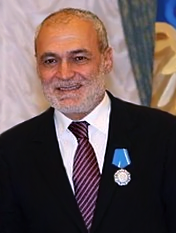
Andranik Migranyan
Dr. Migranyan is the director of the Institute for Democracy and Cooperation, New York. He is also a member of the Council on Foreign and Defense Policy of the Russian Federation, a member of the Valdai Discussion Club, chairman of the Research Council of the CIS Institute, chairman of the commission of the Public Chamber of the Russian Federation (first convocation), and a member of the Public Chamber of the Russian Federation (second convocation). He was a member of the Presidential Council of the Russian Federation, a professor at the Moscow State Institute of International Relations – MGIMO, senior adviser to the Committee on Foreign Relations, Supreme Council of the Russian Federation, chief adviser to the Committee on CIS Problems of Russian Parliament (The State Duma), vice-president of the Reforma Foundation, and first vice-president of the Soglasiye Foundation. Dr. Migranyan is the author of over 500 publications in Russian and other languages.
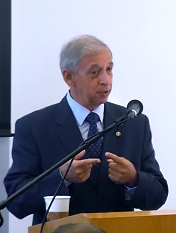
Pavel Minakir
Dr. Minakir is a member of the “Regional Development” section of the Economic Council under the President of the Russian Federation. He is also a member of the Advisory Council of the Federation Council of the Russian Federation, chairman of the Economic Council of the Governor of the Khabarovsk Territory, and a member of the Russian Board of the New Economic Association. He has written more than 400 published journal articles, some in English, Japanese, Chinese, French, and Korean. He was the director of the Institute of Economic Research of the Russian Academy of Sciences in Khabarovsk, and a senior researcher at both the Russian Economic University (Moscow) and at the Institute of Economics of the Russian Academy of Sciences (Moscow). He also worked at the Khabarovsk Academy of Economics and Moscow Central Economics and Mathematics Institute of Russian Academy of Sciences. He lectured in the United States, Japan, South Korea, and China. He was awarded Japan’s Order of the Rising Sun and the International Award “for contributions to the economic cooperation in the Sea of Japan.”
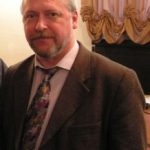
Alexander Nikitin
Dr. Nikitin is a professor in the Department of Political Sciences at the Moscow State Institute of International Relations. He is the director of the Center for Euro-Atlantic Security and a professor at the Moscow State Institute for International Relations (MGIMO); principal research fellow, Institute for World Economy and International Relations (IMEMO), Russian Academy of Sciences; and president emeritus of the Russian Political Science Association. He is an elected member of: the Russian Academy of Military Sciences, the Scientific Council under the Security Council of Russia, and the Scientific-Expert Council of the Collective Security Treaty Organization. He is a researcher at the Institute for U.S. and Canadian Studies (Moscow) and has taught at the MGIMO, Lomonosov Moscow State Universities, and the Higher School of Economics. Dr. Nikitin worked as a senior research fellow, sector head in the USA and Canada Studies Institute. He was a diplomat in the Soviet Permanent Mission to the United Nations (New York, USA). He has written over 150 scientific publications including 50 published abroad. His recent monographs include “International Conflicts” (2017) and “Conflicts, Terrorism, Peace Operations” (2009). He graduated from the Department of Philosophy of Moscow State University and received his PhD (History of International Relations) from the USA and Canada Studies Institute of the Academy of Sciences. His second dissertation (Doctor of Political Sciences) was done at MGIMO.
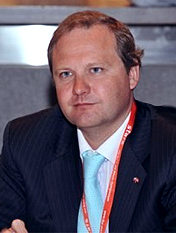
Vladimir Orlov
Dr. Orlov is an expert in international security and Russia’s foreign policy. His area of research includes major threats and challenges to international security, primarily nuclear nonproliferation. He is the founding director of the PIR Center and is the head of the center’s European branch based in Geneva, Centre russe d’etudes politiques. Dr. Orlov is the editor-in-chief of the Security Index Journal, which is now published under the title Yaderny Kontrol.
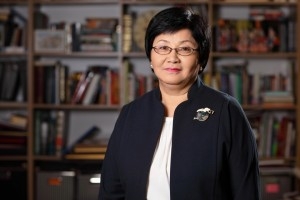
Roza Otunbayeva
Dr. Roza Otunbayeva currently heads “The Initiative of Roza Otunbayeva” International Foundation. Previously, she was elected to the Kyrgyz Parliament and led the opposition fraction, to become the head of the Interim Government of the Kyrgyz Republic. She then became the president of the Kyrgyz Republic, leading the first peaceful transition from an authoritarian to a parliamentary democracy in Central Asia.
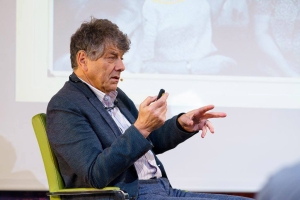
Vladimir Paperny
Vladimir Paperny received his MA in design from the Stroganov Art Academy in Moscow, and his PhD in Cultural Studies from the Russian State University for the Humanities. His PhD thesis was titled “Architecture in the Age of Stalin”. Culture Two was published in Russian (Ann Arbor, 1985; Moscow, 1996, 2006), in English (Cambridge University Press, 2003, 2011), in Czech (Arbor Vitae, 2014) and in Italian (Artemide, 2017). Since moving to the U.S. in 1981, Dr. Paperny was visiting professor at USC, UCLA, Woodrow Wilson Center, and Bristol University, UK. Currently, he is an adjunct professor at UCLA. His articles, essays, and columns (in both English and Russian) appear in such publications as Architectural Digest, Project Russia, Speech and many others. His collections of essays include Mos Angeles, Mos Angeles-2 and Mos Angeles Selected (NLO, 2004, 2009, 2018) and Fuck Context? (TATLIN, 2011). Most recently, he co-edited The Architecture of Great Expositions (Ashgate, 2015). He also continues working in his design studio, doing graphic design, architectural photography, and video production.
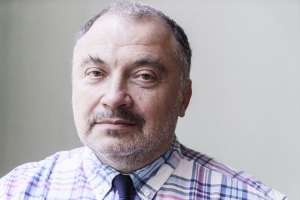
Nikolay Petrov
Nikolay Petrov is a professor and head of the Laboratory of Methodology of Regional Development Evaluation at the Higher School of Economics, Moscow. For many years, he was scholar-in-residence at the Carnegie Moscow Center, where he directed the Society and Regions project. He also heads the Center for Political-Geographic Research. Petrov is a columnist for the information agency RBC (RosBusinessConsulting), a member of the Program on New Approaches to Research and Security in Eurasia (PONARS Eurasia), a member of the Scientific Advisory Councilofthe Finnish Institute of International Affairs, and a member of the scientific boards of: The Journal of Power Institutions in Post-Soviet Societies; Russian Politics; Russian Politics & Law; and Region: Regional Studies of Russia, Eastern Europe, and Central Asia. During 1990–1995, he served as an advisor to the Russian parliament, government, and presidential administration.
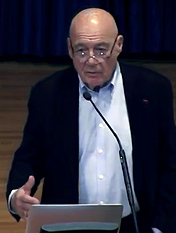
Vladimir Pozner
Mr. Pozner is a veteran journalist, bestselling author, and documentary filmmaker. He is the host of the top-rated weekly current affairs program on Channel One, Russia’s largest television network. Named the “Voice of Moscow” by CNN, Pozner is a regular commentator on Russia and the history of the Cold War in Western media. Mr. Pozner has won multiple Soviet, Russian, and American awards, including three Emmy certificates, ten TEFY awards (the Russian equivalent of the Emmy) and several international awards. He is internationally recognized and ranks among the most respected people in the television profession in Russia today.
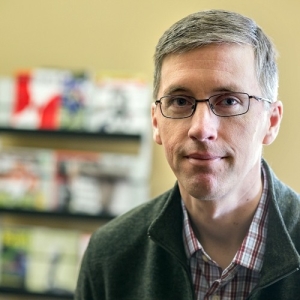
William Pyle
Will Pyle is the Frederick C. Dirks Professor of International Economics at Middlebury College. He has recently held visiting research positions at CESifo in Munich and the Bank of Finland Institute for Emerging Economies (BOFIT). In 2014, he and his BOFIT colleague, Laura Solanko, won the Russian National Prize in Applied Economics for their research on Russian business lobbies. Will is now working on a long-term project relating to the effects of economic dislocation in Russia during the 1990s.
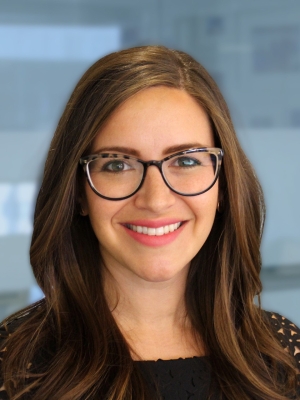
Rachel Rizzo
Rachel Rizzo is a nonresident senior fellow at the Atlantic Council’s Europe Center. Her research focuses on European security, NATO, and the transatlantic relationship. Prior to joining the Atlantic Council, Rizzo served as the director of programs at the Truman Center for National Policy and the Truman National Security Project, where she managed a team of senior fellows and oversaw all Truman-branded publications, programming, and policy initiatives. From 2019-2020, she spent a year as a Robert Bosch fellow in Berlin, Germany, where she worked at the Berlin office of Human Rights Watch leading a research project on the EU’s dual-use surveillance-technology export policy and serving as an advisor to a member of the German Bundestag. Rizzo also spent over five years at the Center for a New American Security and has co-authored several of the center’s reports including More Than Burden Sharing: Five Objectives for the 2018 NATO Summit, Defining Moment: The Future of the Transatlantic Security Relationship, and Transatlantic Security Cooperation in the Asia-Pacific: Recommendations for the Next U.S. Administration. Her writing has appeared in publications such as Politico, Foreign Policy, Defense One, the National Interest, World Politics Review, and War on the Rocks. She is a frequent commentator on European security, and has provided analysis for the New York Times, Washington Post, Wall Street Journal, CNN, National Public Radio, LA Times, Atlantic, Politico, and Foreign Policy, among others. Rizzo received her MA in security policy studies from the George Washington University’s Elliott School of International Affairs where she focused on defense analysis and homeland-security policy. She graduated from the University of Utah with a BA in finance and began her career as a financial analyst with Goldman Sachs.
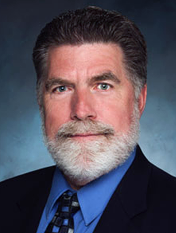
Brad Roberts
Dr. Roberts is the director of the Center for Global Research Security at Lawrence Livermore National Laboratory. He served as deputy assistant secretary of defense for Nuclear and Missile Defense Policy where he worked as the policy director for the Obama administration’s Nuclear Posture Review and Ballistic Missile Defense Review. Dr. Roberts is the author of The Case for U.S. Nuclear Weapons in the 21st Century, which he wrote during his time as a William Perry Fellow at the Center for International Security and Cooperation (CISAC) at Stanford University.
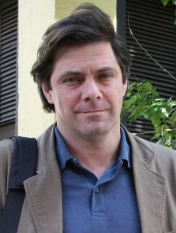
Kirill Rogov
Kirill Rogov is a senior research fellow at the Gaidar Institute for Economic Policy, a member of the Council on Foreign and Defense Policy, and a member of the supervisory board of the Liberal Mission Foundation (Moscow). His recent articles focus on current political development and the post-Soviet history of Russia. He is a columnist for: Vedomosti, Forbes–Russia, and Novaya Gazeta. He was co-founder and editor-in-chief of “Polit.Ru” – one of the first Russian on-line media. He was a columnist for the leading business daily, Vedomosti, and later deputy editor-in-chief at Kommersant Daily, another leading Russian newspaper. Rogov held positions at the Gaidar Institute for Economic Policy, the leading Russian think-tank in economics, and at the Academy for the National Economy and Public Policy. He was an academic secretary and a member of the editorial committee of the working group on economic growth that formulated the Government Strategy until 2020 (Strategy-2020).

Yuri Saprykin
Mr. Saprykin is the author of Observation Points (2015) and leads courses on urban and youth culture for Russia’s leading educational institutions and online resources. He took part in the relaunch of the analytical website Slon.ru and Russia’s oldest English-language publication, The Moscow Times. In the 2000s he was editor in chief of the journal, Afisha, a publication largely responsible for forming the tastes and values of the new educated urban class, the generation of “Russian Europeans.” He is a graduate of MGU’s Department of Philosophy.
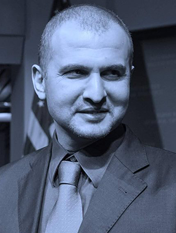
Simon Saradzhyan
Simon Saradzhyan is the founding director of the Russia Matters Project at Harvard Kennedy School’s Belfer Center for Science and International Affairs. He worked in Russia for 15 years where he was a senior fellow at the East West Institute, worked as a consultant for the United Nations and World Bank, and was the deputy editor of The Moscow Times. As an expert on post-Soviet space at the Belfer Center, Saradzhyan repeatedly testified at hearings in the U.S. Congress and Canadian Senate. He also published scholarly articles and commentaries in Annals of the American Academy of Political and Social Science, Bulletin of Atomic Scientists, Foreign Affairs, Financial Times, and The Washington Post. Saradzhyan holds a BA from the Moscow State Linguistics University, an MA from the Harvard Kennedy School, and is a PhD candidate at King’s College London. His research interests include the foreign, defense, and security policies of Russia and other post-Soviet states and their relations with great powers. His thesis focuses on causes of political violence in Russia.
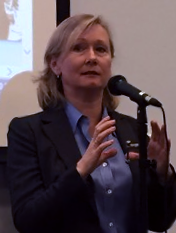
Svetlana Savranskaya
Dr. Svetlana Savranskaya is director of Russia programs at the National Security Archive, George Washington University and an adjunct professor of U.S.-Russian relations and contemporary Russian politics at the American University School of International Service in Washington D.C. She is the editor of the book by Sergo Mikoyan, “The Soviet Cuban Missile Crisis: Castro, Mikoyan, Kennedy, Khrushchev and the Missiles of November” (Stanford: Stanford University Press/Woodrow Wilson Center Press, 2012) and coeditor (with Thomas Blanton and Vladislav Zubok) “Masterpieces of History: The Peaceful End of the Cold War in Europe 1989” (Budapest/New York: Central European University Press, 2010) which won the Link-Kuehl Prize in 2011 from the Society for Historians of American Foreign Relations. She wrote numerous electronic publications and book chapters about the end of the Cold War including, “The Last Superpower Summits: Reagan, Gorbachev, Bush and the End of the Cold War” (Budapest: Central European University Press, 2015). She graduated from Moscow State University, studied at the Institute of World Economy and International Relations of the USSR Academy of Sciences, and received her Ph.D. in Political Science and International Relations from Emory University.

Ksenia Semenova
Ksenia Semenova is a journalist, editor, and public relations expert. She is the Global Community Director at the Q&A service, The Question. She also contributes to the analytical firm, Stratfor, and online journal, Legal Dialogue. She worked as a contributing writer for the Institute of Modern Russia. Ms. Semenova was chief editor at the New York office of Snob Magazine, covering topics from sports to politics and writing a column about life in New York City. She graduated from the Lomonosov Moscow State University, and worked as a public relations specialist at the Contemporary Art Center Winzavod, the first private art cluster. She became its first PR Director and witnessed the establishment of art clusters in Moscow, Saint Petersburg, Perm, and other cities. Even though she later worked as a journalist, she never left the contemporary art sphere, being involved as a PR person for significant art projects.
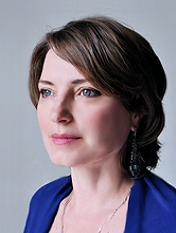
Natalia Sevagina
Dr. Sevagina is an Associate in the Research and Education division of the State Tretyakov Gallery in Moscow. She completed her undergraduate education at the Russian Academy of Painting, Sculpture and Architecture in Moscow, the Novoaltay College of Art, and the Republican Art School in Tallinn. She received her master’s degree from the Russian Academy of Painting, Sculpture, and Architecture in Moscow. Prior to joining the staff at the Tretyakov Gallery, Sevagina taught art history, painting and drawing in secondary and tertiary educational institutions of the City of Moscow. She then served for ten years as a senior research associate at the Ilya Glazunov State Art Gallery.
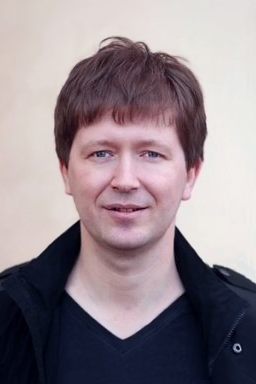
Andrei Soldatov
Andrei Soldatov is a Russian investigative journalist, co-founder, and editor of Agentura.ru, a watchdog of the Russian secret services’ activities. He has been covering security services and terrorism issues since 1999. Soldatov covered the siege in Beslan for Echo of Moskvy, a leading independent radio station, and Moscow News. For Novaya Gazeta, he covered the 2006 Lebanon War from Lebanon and tensions in the West Bank and Gaza Strip.
In October 2012 Agentura.Ru, Privacy International, and Citizen Lab launched the joint project ‘Russia’s Surveillance State’ with Andrei Soldatov as a head of the project, to undertake research and investigation into surveillance practices in Russia, including the trade in and use of surveillance technologies. The project’s research over surveillance measures introduced by the Russian authorities at the 2014 Winter Olympics was run by the Guardian as a frontpage story.
He is co-author with Irina Borogan of The New Nobility. The Restoration of Russia’s Security State and the Enduring Legacy of the KGB (PublicAffairs, 2010), The Red Web: The Struggle Between Russia’s Digital Dictators and the New Online Revolutionaries (PublicAffairs, 2015) and The Compatriots: The Brutal and Chaotic History of Russia’s Exiles, Émigrés, and Agents Abroad (PublicAffairs, 2019).
Soldatov has been a nonresident senior fellow with the Center for European Policy Analysis and a visiting fellow at King’s Russia Institute, London, since 2020.
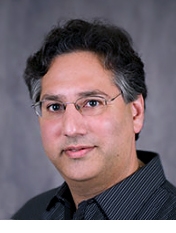
Adam Stulberg
Dr. Stulberg is a Professor and Co-Director of the Center for International Strategy, Technology, and Policy (CISTP) in the Sam Nunn School of International Affairs. He teaches undergraduate and graduate courses on international security, Eurasian politics and security affairs, nuclear nonproliferation, and energy and international security, as well as interdisciplinary courses on science, technology, and international security policy. His current research focuses on energy security dilemmas and statecraft in Eurasia, new approaches to strategic stability and denuclearization of military arsenals, internationalization of the nuclear fuel cycle, counter network warfare, and the implications of emerging technologies for strategic stability and international security.
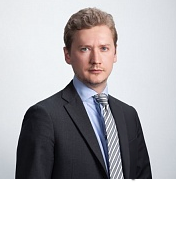
Andrey Sushentsov
Dr. Sushentsov a political analyst and international relations professor at Moscow State Institute of International Relations (MGIMO). He is also a managing partner with the Moscow-based consulting agency, Foreign Policy Analysis Group. His publications include, “America’s Small Wars” and “Essays on U.S. Politics and Regional Conflicts,” as well as articles on U.S.-Russian and Russian-Georgian relations. In his field-based research, Sushentsov focuses on U.S. and Russian interests in Ukraine and the South Caucasus. In 2015, he edited a volume of Russian perspectives on international security issues looking ahead to 2020. He was an EASI-Hurford Next Generation fellow at the Carnegie Endowment for International Peace focused on Russian policy toward Ukraine and the future of Russian-Ukrainian interdependence.
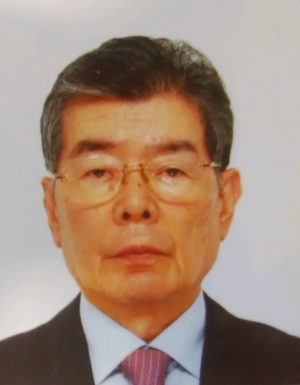
Masataka Suzuki
Masataka Suzuki was born in Shizuoka Prefecture, Japan. He graduated from Chuo University Faculty of Law. He then proceeded to join the Defense Agency, National Police Agency, Chiba Prefecture Police. In 1995, he was elected to the House of Councilors (Upper House) of the Japanese Parliament, where he served until 2001. There, he was a member of numerous committees, including the Committee on Foreign and Defense Affairs, the Budget Committee, and the Judiciary Committee. Suzuki was also Secretary-General of the Council of Parliament Members on Japan-US-Europe Comprehensive Security. Currently, he is a Board Member of the Association of Former LDP Parliament Members.
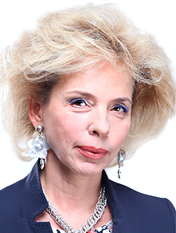
Elena Telegina
Dr. Telegina is the dean of International Energy Business Faculty and the director of International School of Business at the Gubkin University of Oil and Gas. She is the director of the Institute of Geopolitics and Energy Security of Russia, a professor of Economics, and a corresponding member of the Russian Academy of Science. She has worked in global energy security, energy economics, and international energy cooperation and investments. She served as a member of the board of directors of LuKoil European Holdings in the Netherlands. She was vice minister of Energy of the Russian Federation, while also serving as the vice chairman of the European Energy Charter Conference. She was a chairman of the board of directors at Rosneft Oil Company. Since 1999 she has been a member of the board of the Union of Oil Exporters of the Russian Federation.
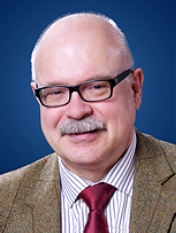
Dmitri Trenin
Dr. Dmitri Trenin, senior associate of the Carnegie Endowment and Director of the Carnegie Moscow Center, is chair of its Foreign and Security Policy Program. He has been with the Carnegie Moscow Center since its inception in 1993. He was a senior research fellow at the Institute of Europe in Moscow and a senior research fellow at the NATO Defense College in Rome. He served in the Soviet and Russian armed forces as a liaison officer in the external relations branch of the Group of Soviet Forces (stationed in Potsdam) and as a staff member of the delegation to the U.S.-Soviet nuclear arms talks in Geneva. He taught at the War Studies Department of the Military Institute. His lectures addressed U.S.-Russian relations, Russian foreign policy, and the enduring significance of Russia to the United States.
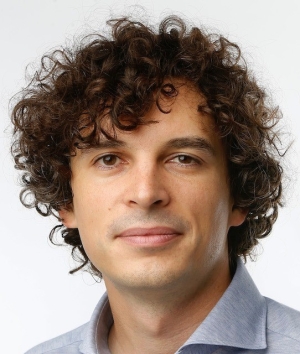
Anton Troianovski
Anton Troianovski is the Moscow bureau chief for The New York Times. He arrived in Moscow in January 2018 as bureau chief for The Washington Post, and joined the Times the following year. He has reported on politics, war, culture and the environment across the post-Soviet space, from Ukraine and Azerbaijan to the Arctic and the disputed Kuril Islands in the Pacific. His article on the thawing permafrost of the Kolyma River basin in Siberia was part of the Washington Post series that won the 2020 Pulitzer Prize for Explanatory Reporting. Before coming to Moscow, Anton spent nine years at The Wall Street Journal, covering real estate and telecommunications in New York and then moving to Berlin as a Germany correspondent. He began his journalism career as a freelance photographer for the Webster-Kirkwood Times in Missouri. He was born in Moscow and grew up in Heidelberg, Germany, and in St. Louis. He holds a bachelor’s degree in social studies from Harvard University.
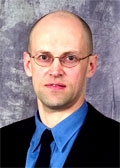
Andrei Tsygankov
Andrei P. Tsygankov is professor at the departments of Political Science and International Relations at San Francisco State University. He published several books in English and Russian including, Anti-Russian Lobby and American Foreign Policy (2009), Russia and the West from Alexander to Putin (2012), and The Strong State in Russia (2014), as well as many journal articles. A Russian native, Tsygankov is a graduate of Moscow State University (Candidate of Sciences, 1991) and University of Southern California (Ph.D., 2000).
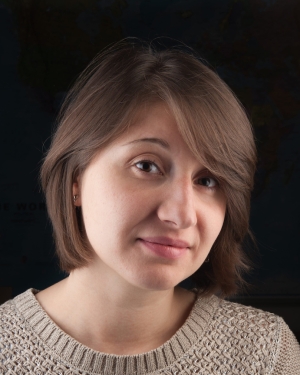
Olesya Vartanyan
Olesya Vartanyan has been working on conflicts in the South Caucasus region for almost 15 years. She is currently Crisis Group’s Senior Analyst responsible for research on regional security issues in Armenia, Georgia and Azerbaijan, with a particular focus on breakaway regions in the South Caucasus – Abkhazia, Nagorno-Karabakh and South Ossetia. Olesya leads advocacy at the national level, in the regional capitals, Europe and the U.S.
Before joining Crisis Group in 2016, Olesya was a journalist, with a particular focus on security and conflict-related issues in Georgia and its breakaway regions. With her field reporting during the 2008 Russia-Georgia war, Olesya contributed to the ground-breaking investigations of The New York Times about the origins of the conflict. Enjoying unique access to Abkhazia, for a number of years she covered crisis developments in this region for Radio Free Europe/Radio Liberty. In 2013, Olesya received the first EU Monitoring Mission’s special prize in Peace Journalism for reporting on missing people in the Georgia-Abkhazia war in the 1990s. She holds master degrees from the King’s College London’s War Department and from the Georgian Institute of Public Affairs’ Media School.
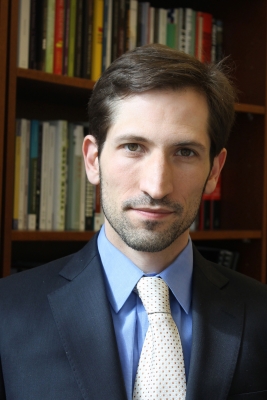
Justin Vogt
Justin Vogt is an executive editor at Foreign Affairs. Prior to joining the magazine in 2011, he was the managing editor of World Policy Journal. Earlier, he was a research editor and fact-checker at The New Yorker, an associate producer on documentary films for the PBS series Frontline, and the business manager of the independent music label Palace Records. His writing has been published by The New Yorker, The New York Times, Slate, and other outlets.
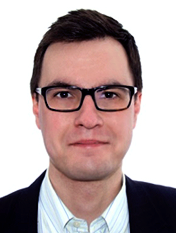
Feodor Voitolovsky
Dr. Feodor Voitolovsky is deputy director at the Institute of World Economy and International Relations of the Russian Academy of Sciences (IMEMO). He is one of the leading experts of IMEMO’s forecasting program. He is also a professor of Political Science at MGIMO University. Dr. Voitolovsky is an editorial board member of the “World Economy and International Relations” journal and published approximately 80 articles and chapters in books. His main publications are focused on: U.S. foreign and security policy, transatlantic relations, and Russian-American and Russia-NATO relations.

Alexander Vylegzhanin
Dr. Vylegzhanin is a professor and the Head of the Department of International Law at MGIMO in Moscow. He served as a member and the head of Soviet delegations to international negotiations and consultations. He is the current vice-president of the Russian Association of International Law, as well as the vice-president of the Russian Association of the International Law of the Sea. He is a member of the Russian Academy of Natural Sciences, and other expert councils and boards. He has published over 150 scientific and academic works on international law.
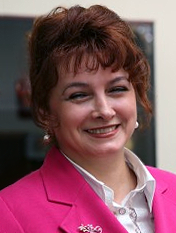
Tatiana Zakaurtseva
Dr. Tatiana Zakaurtseva works at the Diplomatic Academy of the Foreign Ministry of the Russian Federation. She is a preeminent expert in modern American history, theory, the history of international relations, Russian foreign policy, and regional issues in the Eurasia space. She wrote over 50 articles on contemporary issues relating to international relations in both Russian and international journals, periodicals, and textbooks. Dr. Zakaurtseva actively participates in international fora, conferences, and seminars both in Russia and abroad. She serves as a member of: the Expert Council on Foreign Relations of the Federation Council of the Russian Federation, the coordination of the public council on Russia’s participation in the G-8, and the specialist expert group of the Ministry of Foreign Affairs of the Russian Federation. She has also directed social and educational activities including lectures for young Russian and foreign diplomats.
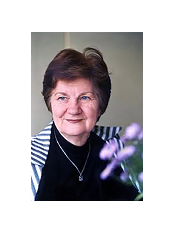
Zhanna Zayonchkovskaya
Dr. Zayonchkovskaya, a leading specialist on international migration and multicultural policies, is head of the laboratory for migration analysis and forecasting at the Institute of Economic Forecasting of the Russian Academy of Sciences. She is the president of the CIS Research Center on Forced Migration and a member of the Supervisory Board of the Moscow Carnegie Endowment for International Peace, the Board of the Federal Migratory Service of Russia, and the Editorial Board of the Russian Demographic Yearbook. She is chair of the Independent Research Council for Migration in the CIS and Baltic States and the author of more than 130 scientific publications, including six monographs.
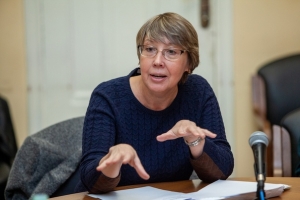
Victoria Zhuravleva
Victoria I. Zhuravleva is a Doctor of Science (History), a Professor of American History and International Relations, Сhair of the American Studies Department and Vice-Dean of the Faculty of International Relations and Area Studies at the Russian State University for the Humanities, Moscow, Russia. She has authored and co-authored a variety of publications. She is editor and co-editor of several volumes on History and Imagology of Russian-American relations as well as on American History, including Russian-American Relations in Past and Present: Images, Myths, and Reality (in Russian), Abraham Lincoln: Lessons of History and the Contemporary World (in Russian), Russia and the United States: Mutual Representations in Textbooks (in Russian, 2009). Her field of research interests is American history with a specialization in Russian-American relations and U.S. foreign policy. Victoria Zhuravleva is a member of editorial boards of academic journals such as Amerikanskii ezhegodnik (The American Year-Book), Sravnitel’naia politika (Comparative Politics); Vestnik RGGU (RSUH/RGGU Bulletin. Series: Politics. History. International Relations. Area Studies), Modern History, Journal of Russian-American Studies (JRAS). She is an Alumna of the Fulbright Program and the Kennan Institute Program. She was awarded the Medal of the Russian Ministry of Education for the development and improvement in students’ research activities.
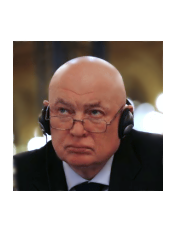
General Pavel Zolotarev
Retired Major General Pavel Zolotarev is the deputy director of the Institute for U.S. and Canada Studies at the Russian Academy of Sciences and a professor at the Academy of Military Sciences. He previously served as head of the Information and Analysis Center of the Russian Ministry of Defense and deputy chief of staff of the Defense Council of Russia.
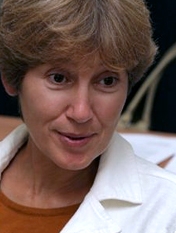
Natalia Zubarevich
Natalia Zubarevich is Russia’s leading expert on social and economic development of regions, social and political geography, and urban development. She is a professor at the Department of Geography of the Moscow State University and director of the regional program at the Moscow-based Independent Institute for Social Policy. She is a member of the expert board of the Russian government and has directed programs for several Russian ministries. She was an expert of the UN Development Program (Russia). She also authored a number of reports on the development of human resources in Russia for the International Labor Organization and research reports for the Social Development Foundation (World Bank).
